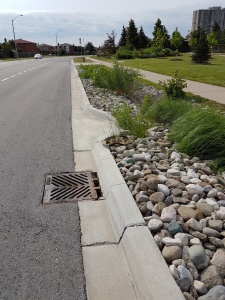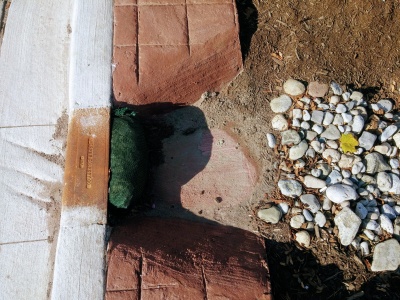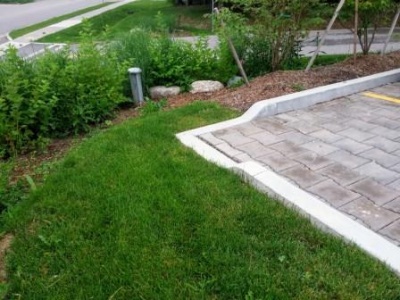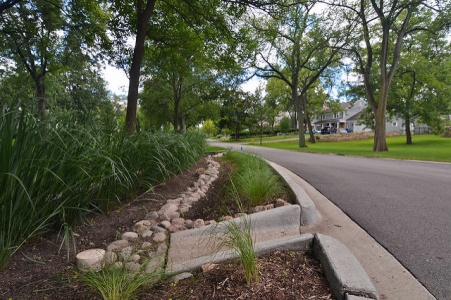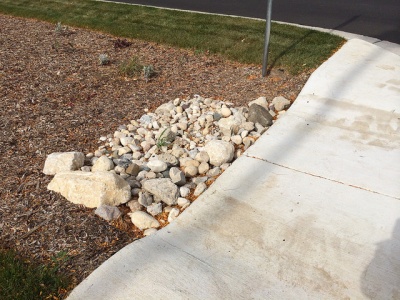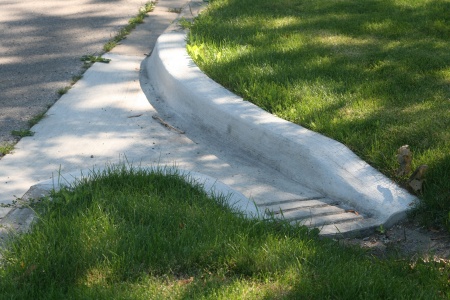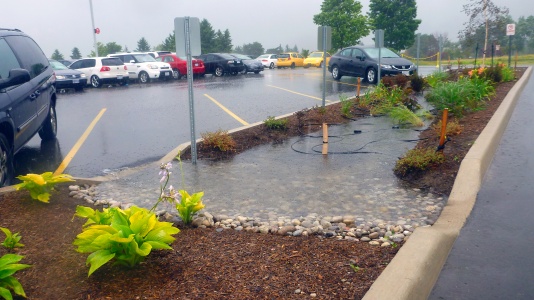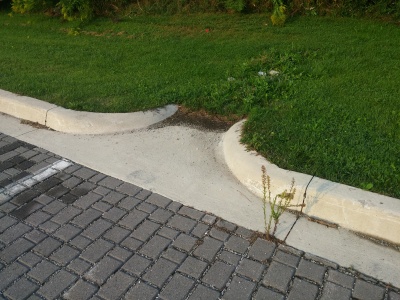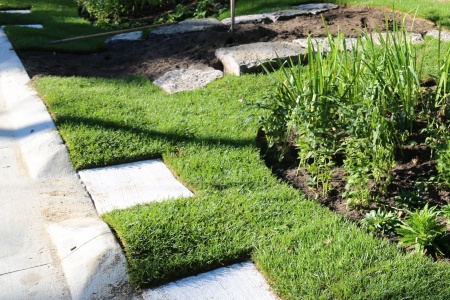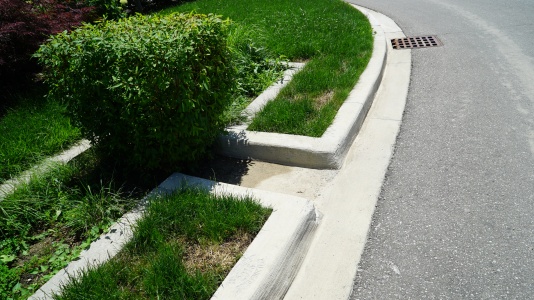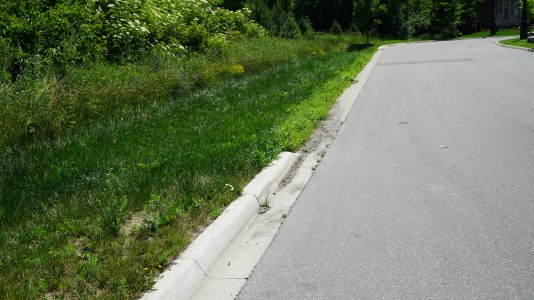Curb cuts
Curb cuts are a form of LID/BMP inlet.
They are well suited to retrofit scenarios and to collect runoff from catchments with relatively gentle longitudinal slope, and/or a greater cross slope. This might be the local topography of a parking lot or a piece of parkland?
As this inlet width is directly proportional to longitudinal slope; the required curb cut width increases rapidly on steeper roads.
Standard width (450 mm), as included in OPSD drawings should be compared to and modified for the flow requirements of the practice.
| Flow direction | From asphalt catchment | From concrete catchment |
|---|---|---|
| 30 - 45 deg | 605.020 [1] | 605.010 [1] |
| 90 deg | 604.020 [1] | 604.010 [1] |
Sizing[edit]
To completely capture linear flow travelling along a gutter perpendicular to a curb inlet, the inlet must be of width[2]::
Where:
- WT is the width of the inlet for complete capture (m),
- Q is the design flow perpendicular to the inlet (m3/s)
- S0 is the longitudinal slope ratio
- n is Manning's 'n' (between 0.012 and 0.016 for concrete, depending on surface treatment), and
- Sx is the cross slope ratio (typically between 0.015 and 0.04)
Where the intention is to capture only a proportion of the flow, the ratio of flow entering the curb inlet may be calculated::
Where:
- Rc is the proportion of flow entering the curb cut, and
- W is the available curb cut width (m)
Where the curb cut width is constrained and a greater flow into the BMP is desired, the effective cross slope may be increased by adding a depressed apron.
Example[edit]
A curb cut of 3 m is proposed as an inlet for an offline bioretention cell receiving runoff from an adjacent roadway. The gutter and the curb are made from smooth concrete with Manning's 'n' = 0.013. The x-slope is 3% and the longitudinal slope of the road is 2%. The 1 in 25 year design storm produces a peak flow of 0.08 m3/s.
The width of inlet to capture 100% of this flow is::
The proportion of water entering the bioretention cell under these flow conditions would be::
48% of the 0.08 m3/s (i.e. 0.038 m3/s) would enter the bioretention cell through the inlet as designed.
Curb cuts gallery[edit]
This curb cut has been sawn into existing concrete as part of a retrofit. Note the temporary (erosion log) and permanent stone erosion control measures in place. Mississauga Road, ON.
Curb cut used as a controlled overflow route from permeable pavements to a bioretention facility with monitoring well, Lake Simcoe Region Conservation Authority, Newmarket, ON.
Curb cut into a bioretention facility in Brown Deer, WI. Stone is used to reduce erosion around the inlet area. Photo credit: Aaron Volkening
Stone lined inlet at IMAX site in Mississauga
The grading around this inlet prevents flow in the correct direction. i.e. from the pavement onto the grass. Not too critical in this example, as the surface is permeable pavements.
Curb cut into a rain garden on a green street in Newmarket, ON.
- ↑ Jump up to: 1.0 1.1 1.2 1.3 http://www.roadauthority.com/Standards/?id=b00e3771-6095-4257-b029-1d9879418039
- ↑ U.S. Department of Transportation, Federal Highways Administration. 2013. “URBAN DRAINAGE DESIGN MANUAL.” https://www.fhwa.dot.gov/engineering/hydraulics/pubs/10009/10009.pdf.File:USFHWA 2009.pdf




